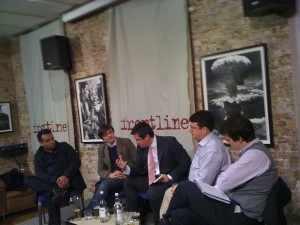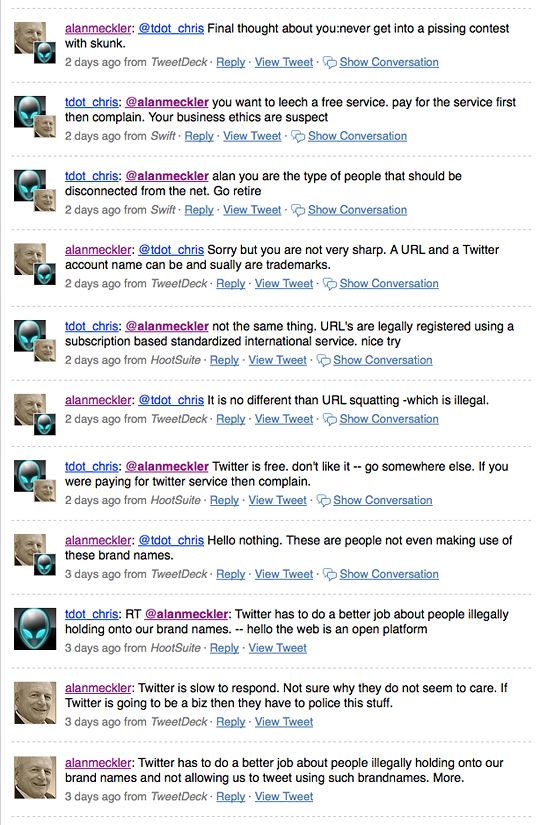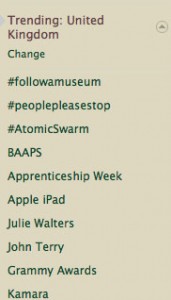Starting this week, the editor’s blog will feature an afternoon roundup of all things media from over the pond. From the hugely important to the very inconsequential, check in for a choice of America’s journalistic goings on.
ABC president soft-peddles what look like substantial cuts
Do you want the bad news or just the news first? Bad? OK.
The bad news today comes from the Los Angeles Times in the form of an announcement by ABC that it is to make a “fundamental transformation” to its news division. “Fundamental transformation” being bad-newsspeak, of course, for ‘streamlining’, or ‘workforce optimisation’, or ‘force shaping’, or, even, ‘mass redundancies’.
Reports suggest the company may be ‘smart-sizing’ its ‘force’ to the tune of a 20 per cent reduction. The news arm currently employs 1,400 staff. The maths, or ‘math’ in this case, produces bad news whichever way you phrase it.
David Westin, president of ABC News, went with a memo that all sounded like this:
The time has come to anticipate change, rather than respond to it. We have a rare opportunity to get in front of what’s coming, to ensure that ABC News has a sound journalistic and financial footing for many years to come, and to serve our audiences even better. But we must move boldly and promptly.
Redundancies have been offered, but it seems likely that if staff don’t move as ‘boldly and promptly’ and Westin intends to, they’ll be pushed.
Unsurprisingly, it’s not all about contraction though:
In newsgathering, we intend to dramatically expand our use of digital journalists […] In production, we will take the example set by Nightline of editorial staff who shoot and edit their own material and follow it throughout all of our programs…
So, listen up: if you can write copy, sub-edit, shoot and edit video, write code, produce an outside broadcast by yourself, mend a broken server, and all the while keep time on the big drum strapped to your back, now is the time to show your face at ABC.
Westin’s memo reprinted at the Los Angeles Times.
Washington Post Co. and A.H. Belo Corp announce Q4 profits against backdrop of newspaper arm losses
Just in from Editor & Publisher, news that the Washington Post Co. and A.H. Belo Corp (parent company to the Dallas Morning News) both had a profitable fourth quarter 2009. The Washington Post Co. reported a Q4 profit $82.2 million, or $8.71 a share, in comparison with $18.8 million, or $2.01 a share in Q4 2008. A.H. Belo recorded a much more moderate $5.6 million, or $0.27 per share, its first quarterly profit since it was spun off from Belo Corp. two years ago.
The figures behind the figures at the Washington Post Co. make for fairly grim reading on the newspaper side of things though, with advertising revenue still in decline. From E&P:
Newspaper revenue declined four per cent in the fourth quarter to $193.3 million. Print ad revenue was down 9 per cent to $92.6 million, with declines in classified, zones and retail advertising offset by an increase in general advertising.
And whilst the overall figures seem to be going in the right direction, they are nonetheless sobering:
For the full year 2009, the newspaper division reported an operating loss of $163.5 million, compared to an operating loss of $192.7 million in 2008.
Similarly, at A.H. Belo:
Advertising revenue continued to fall substantially in the quarter, with the retail down 30.9 per cent, and print classified down 31.1 per cent. Internet revenue fell 8.5 per cent, to $10.1, which accounted for 7.5 per cent, of total revenue for the quarter.
Washington City Paper editor’s second attempt to leave proves successful
From E&P again, news that Erik Wemple is leaving the Washington City Paper, where he has been editor for eight years. He will join Allbritton Communications’ new local start-up in Washington D.C.
Wemple accepted a position as editor of Village Voice in New York during his editorship of the Washington City Paper, but changed his mind before his first day, deciding instead to stay put.
Yahoo late to the Twitter party, but may have come best dressed
Today’s big social media news is a Yahoo/Twitter partnership.
TechCrunch takes an irreverent look at the embargo politics surrounding the announcement, and a sideswipe at Yahoo for being late to the party:
Yahoo and Twitter have reached an agreement to share data between their properties. That’s great. Yahoo is only a few months behind Google and Microsoft (Bing) doing the same thing.
It seems Yahoo! got so over excited at the news themselves that they toyed with their Twitter followers over the course of the day, hyping the announcement by tweeting clues, and possibly confusing its importance with your Moon landings and presidential race winners.
- Clue #1/5: Who has approx 29,000 followers as of this morning? #ybignews
- Clue #2/5: What kind of “moon” had teen moviegoers swooning last fall? #ybignews
- Clue #3/5: Who might you greet with a friendly “howdy”? #ybignews (use hashtag for previous clues)
- Clue #4/5:What’s both a sugar substitute & a mathematical symbol? #ybignews (use hashtag for previous clues-forms a phrase)
- Final clue: A little birdie told us to find them @twitter #ybignews Thanks for following us (winners notified soon)
What fun.
Mashable goes into more detail about the partnership, claiming that despite its tardyness it is more comprehensive, and a better all round deal than Twitter’s search partnerships with Google and Bing.
“This is a local blog, for local people…” Erm, I think you mean hyperlocal there love
Following on from yesterday’s US Digest coverage of the NYT’s new East Village hyperlocal venture, a small, but useful post from Lost Remote today outlines its take on some key new terms:
There is a difference between the terms “local”, “hyperlocal” and “niche” and I want to outline our editorial policy regarding the three. We see the three used interchangeably some times, and I think it’s important we all recognise the differences. ‘Hyperlocal’ covers neighborhoods, while ‘local’ covers towns and cities. We get some press releases here about how stations or newspapers are starting new ‘hyperlocal’ websites that cover their city or a given topic in their city (say, ‘moms’). A mum blog is a niche site. A neighbourhood blog is hyperlocal. A city blog is local. Disagree? Let us know.



